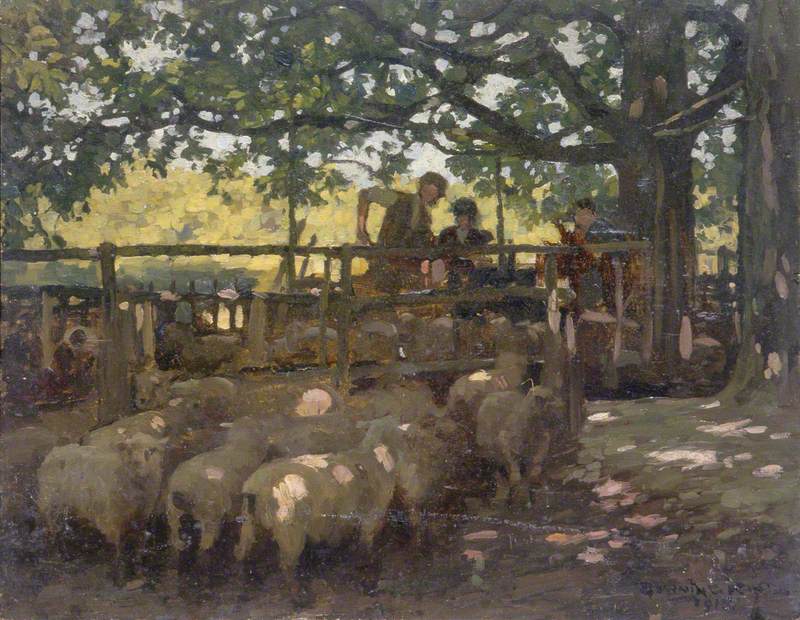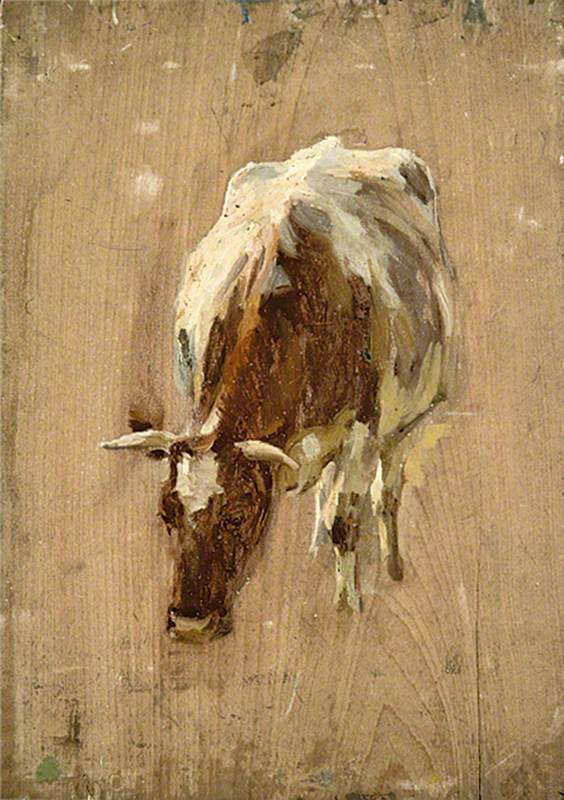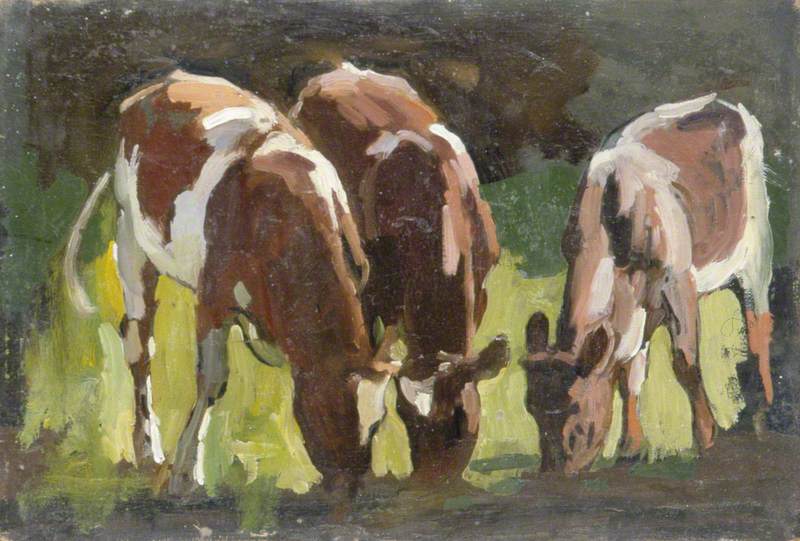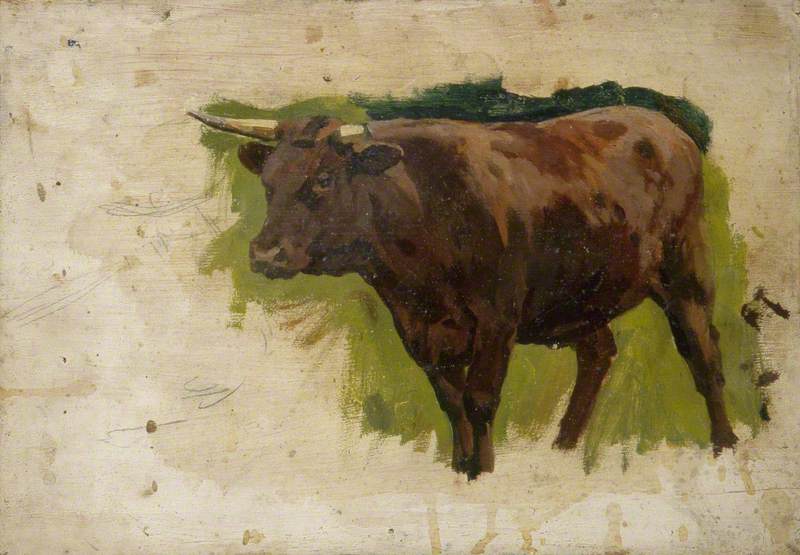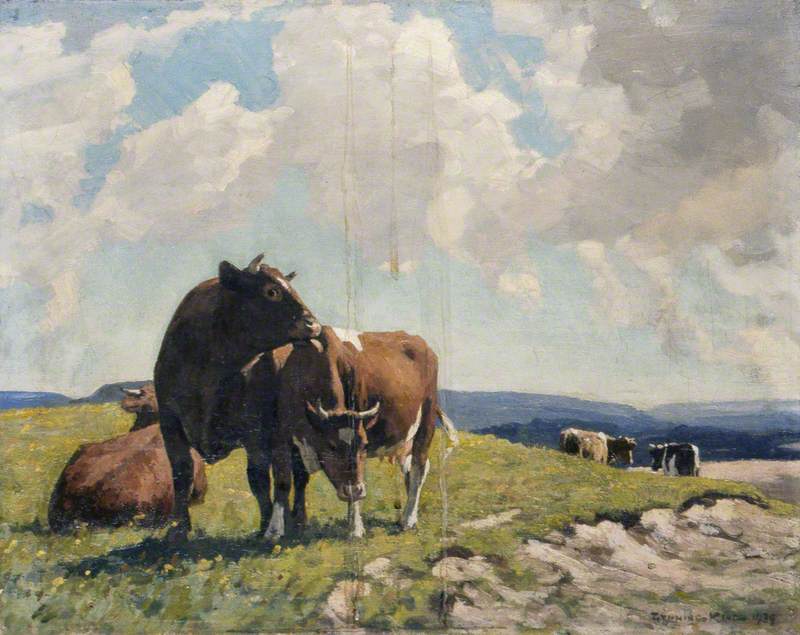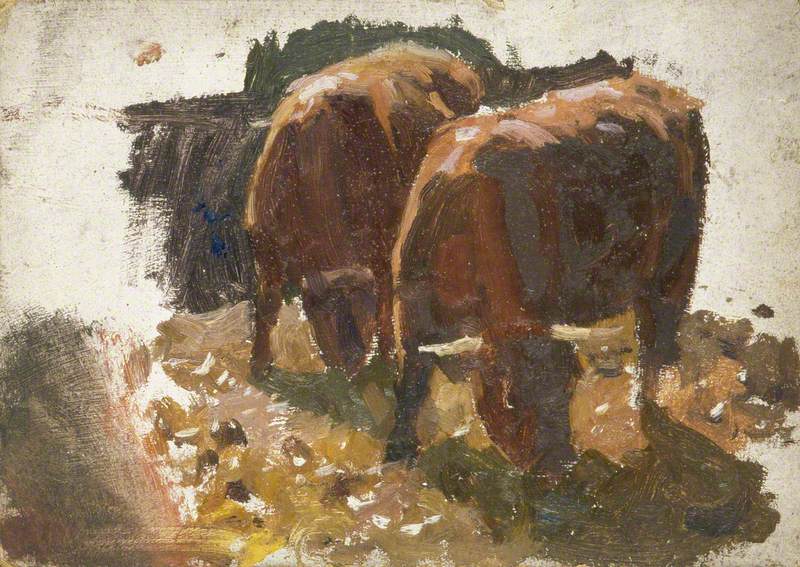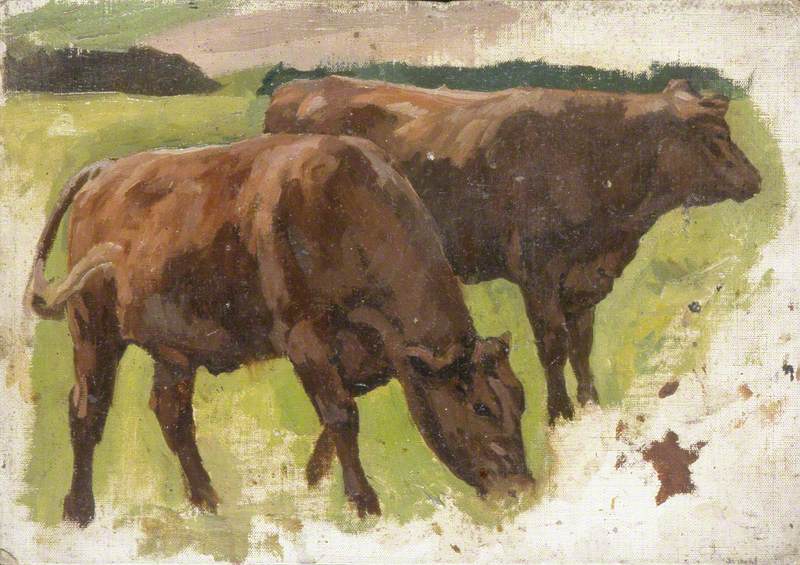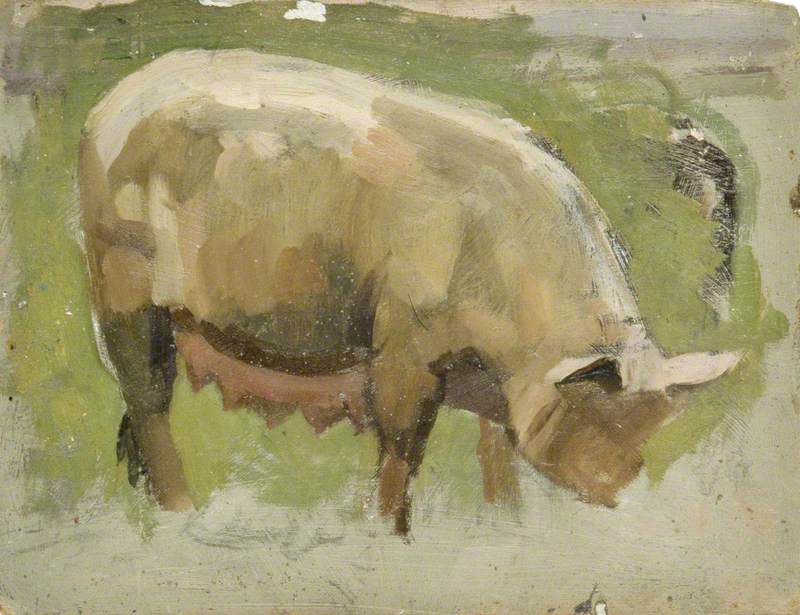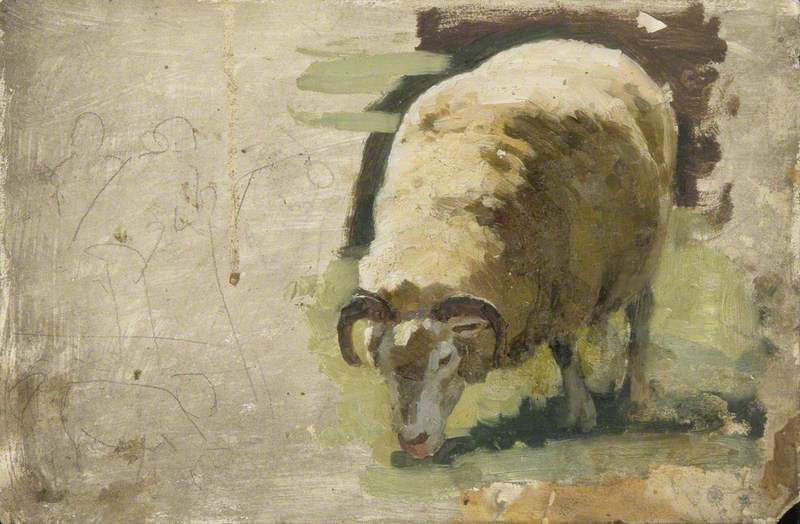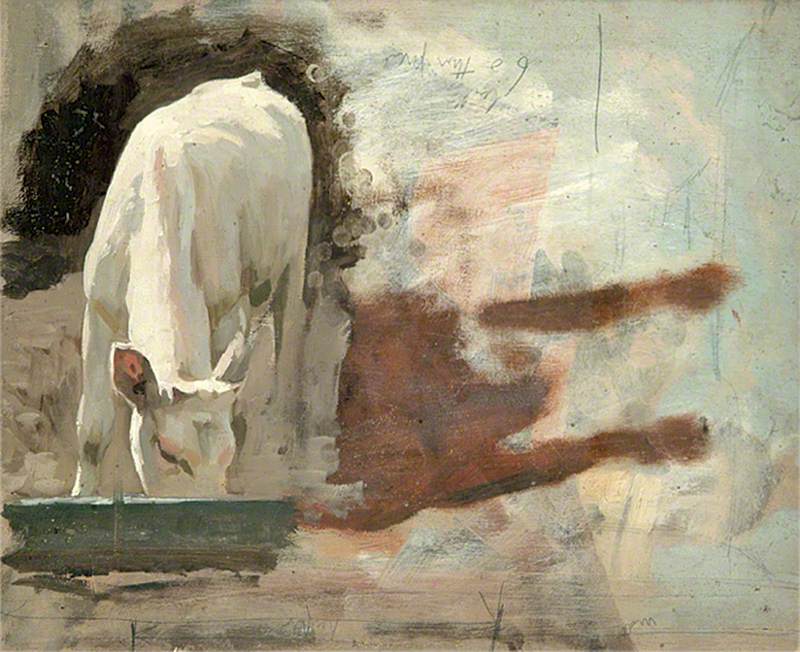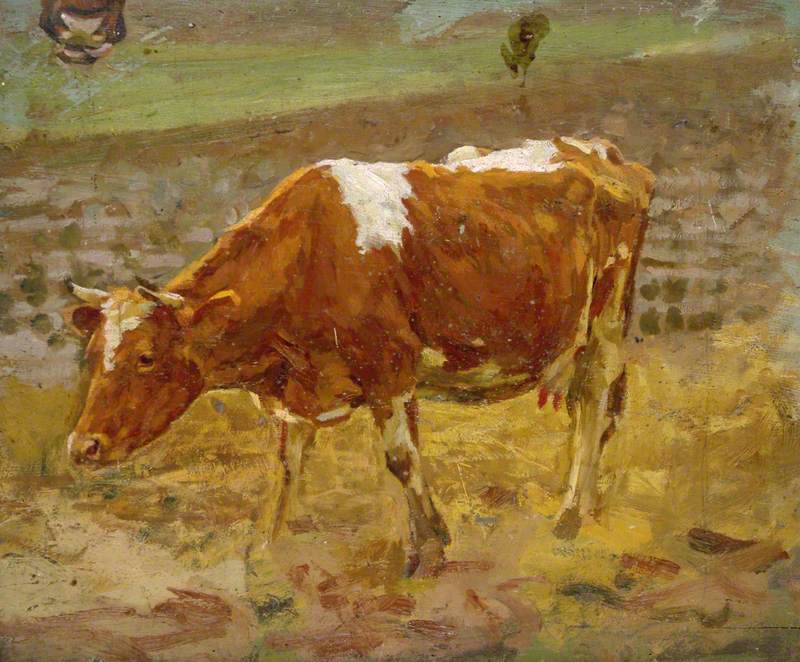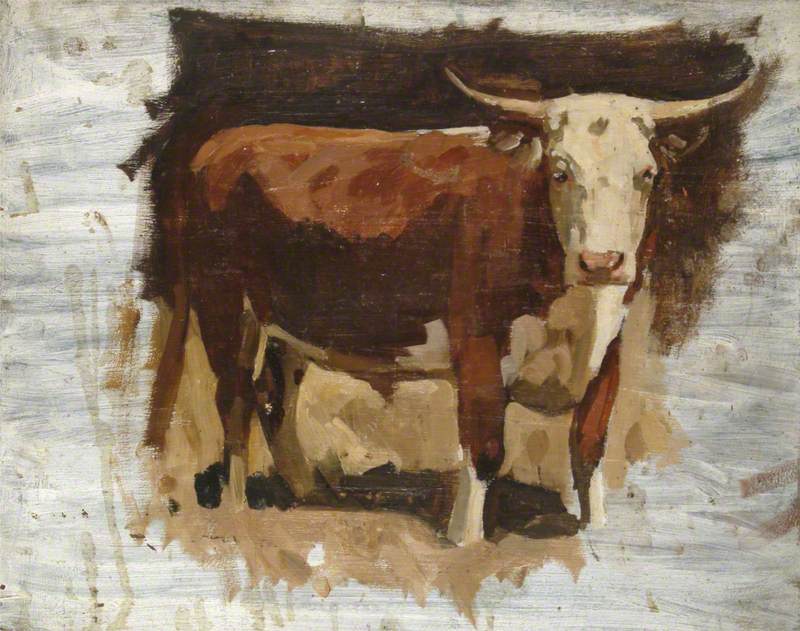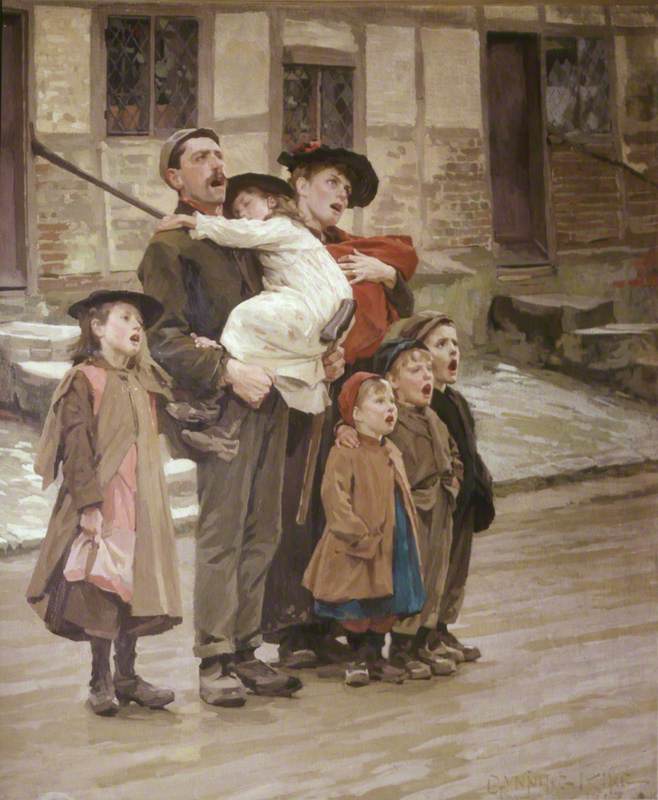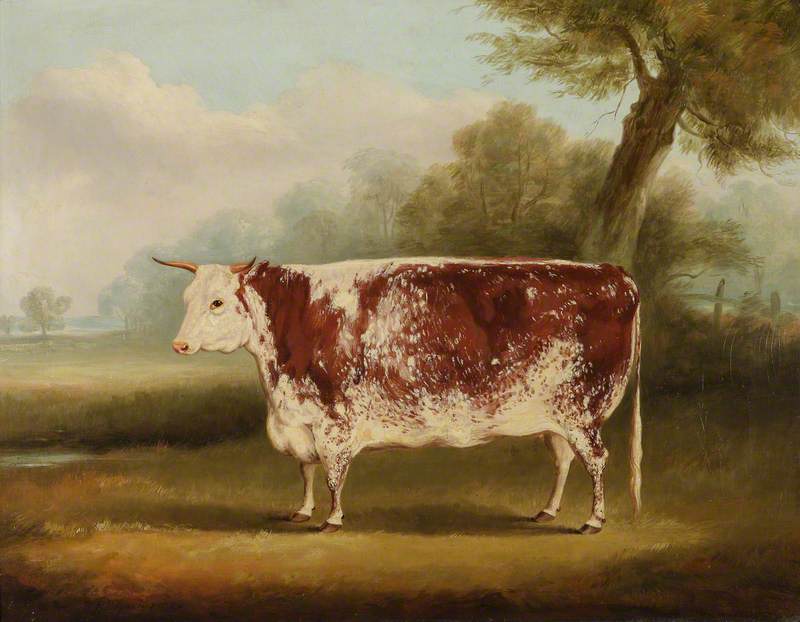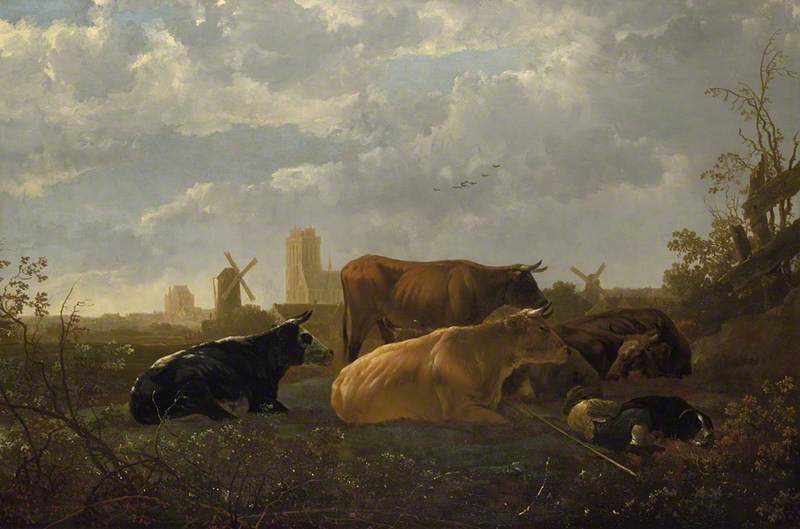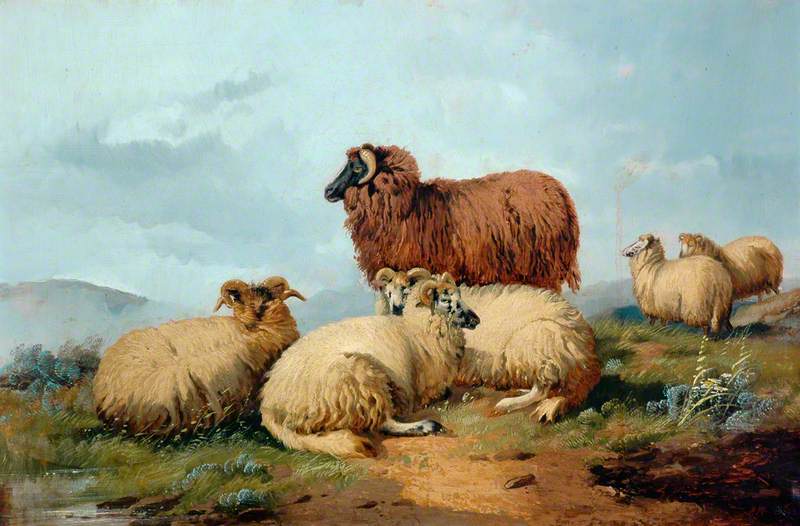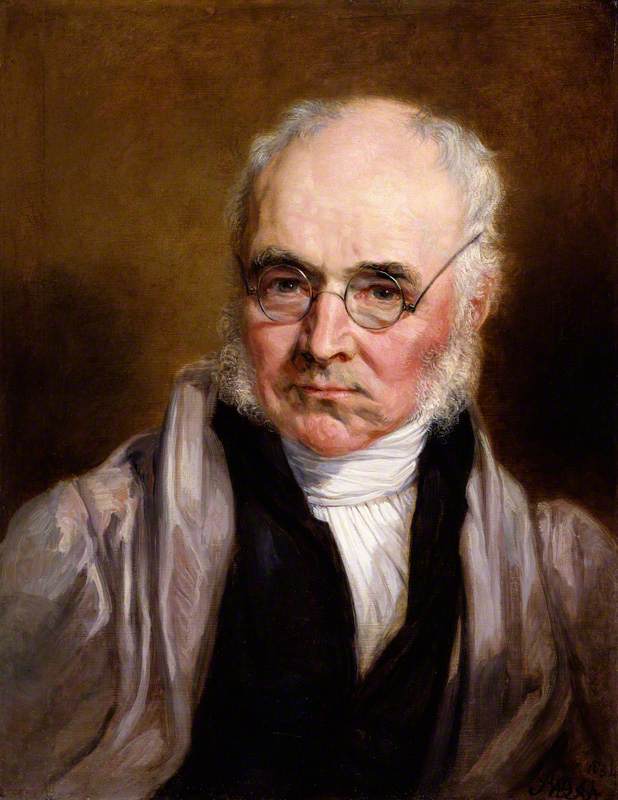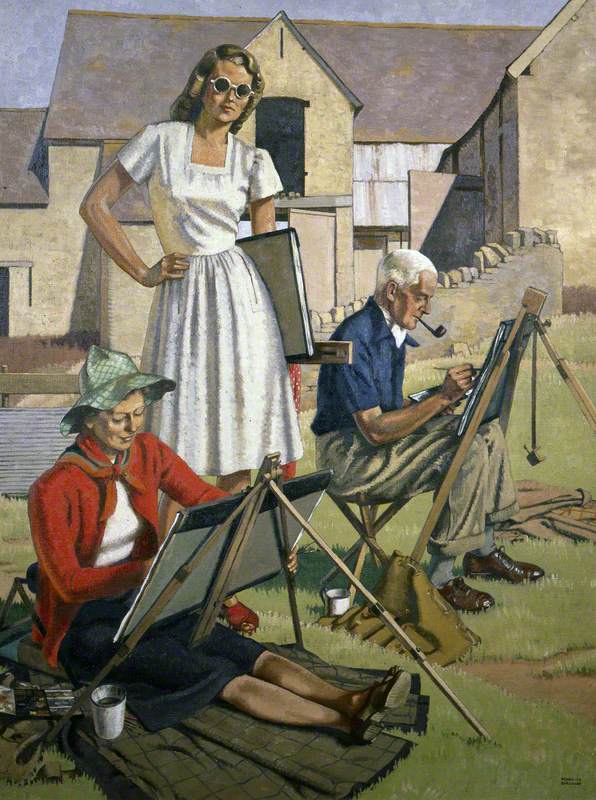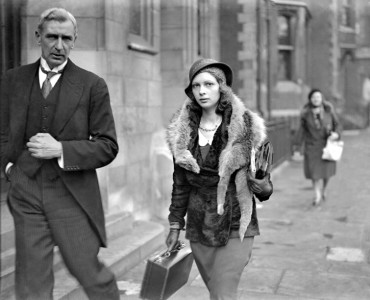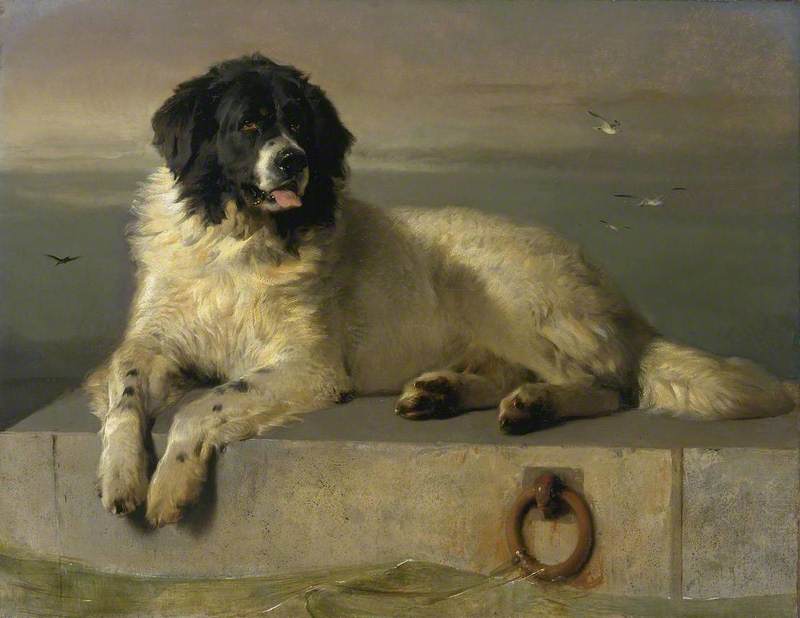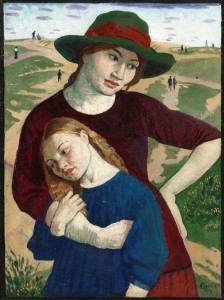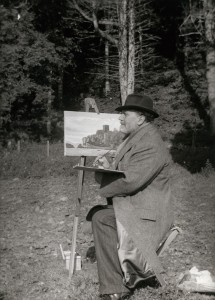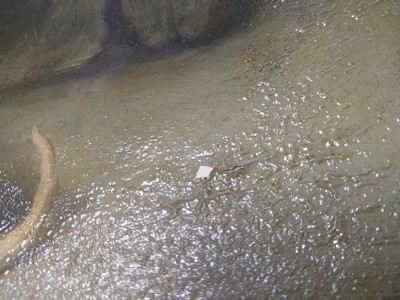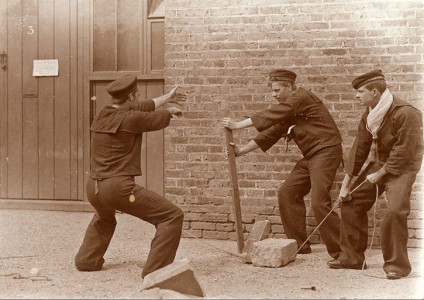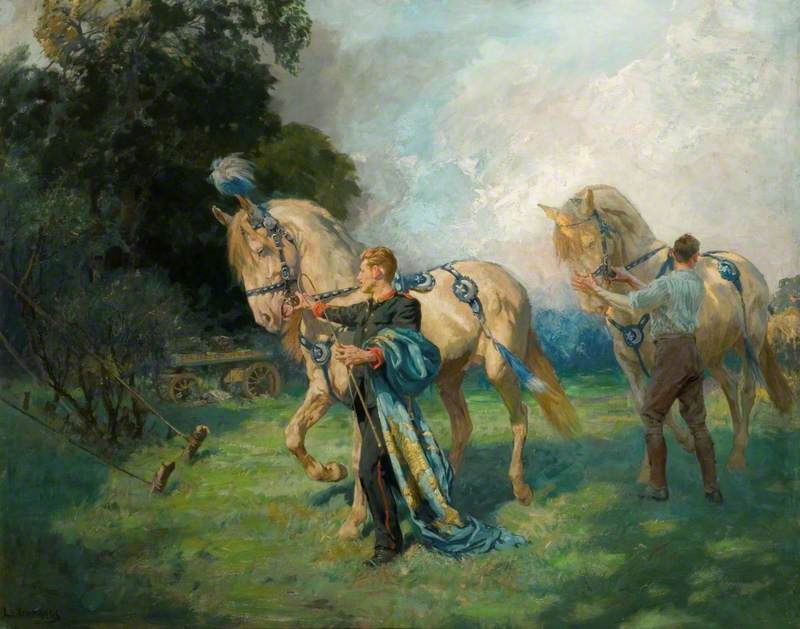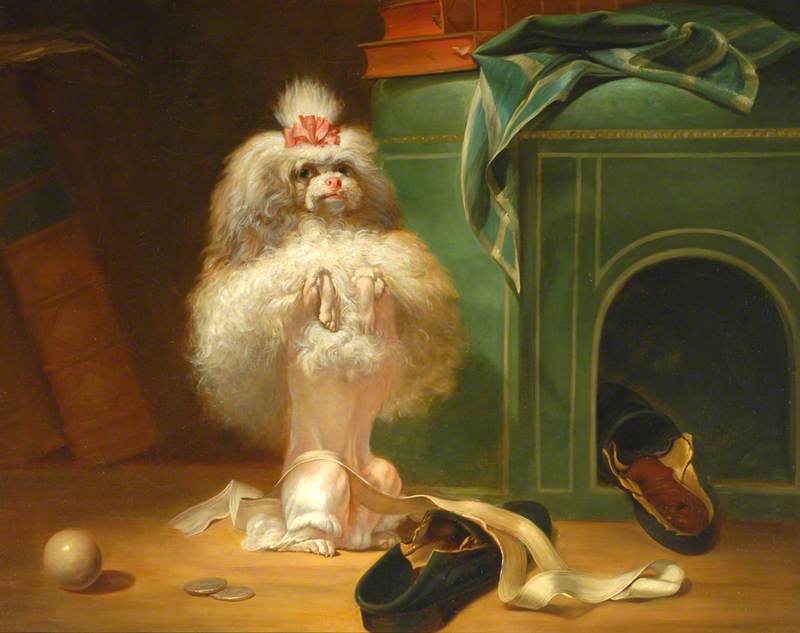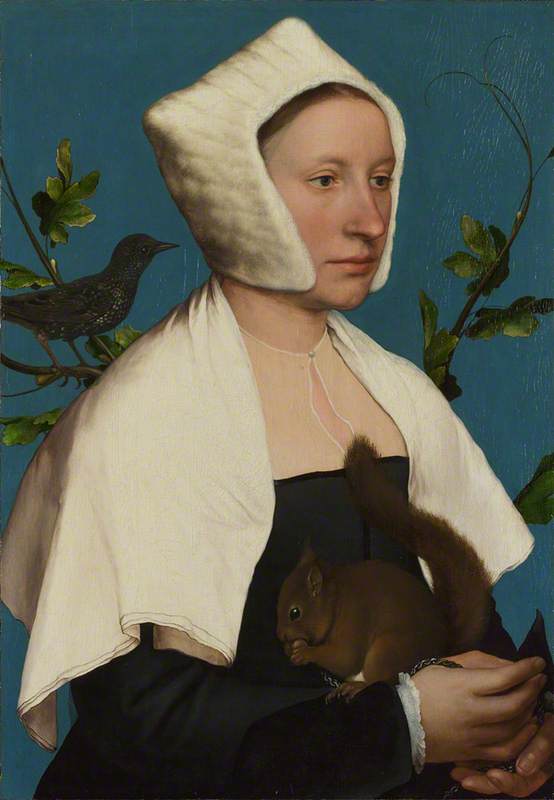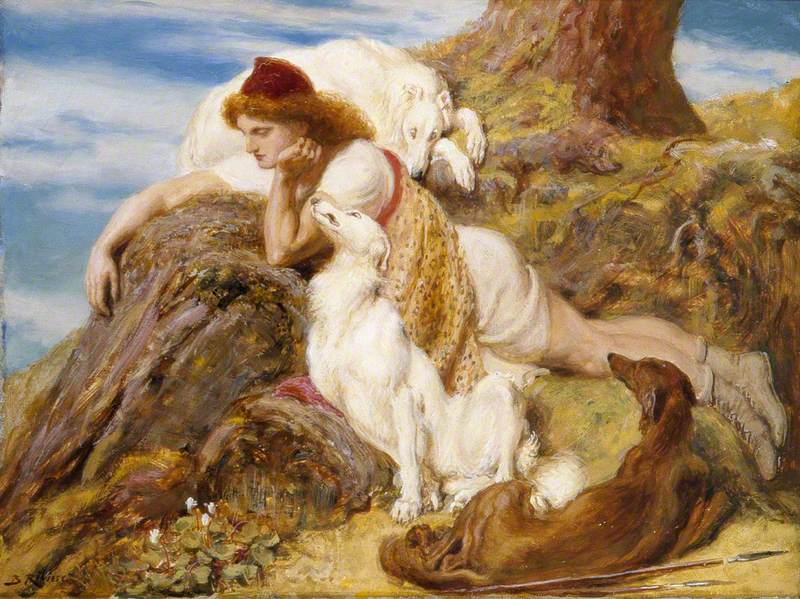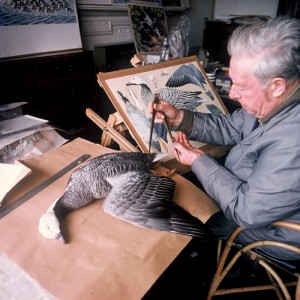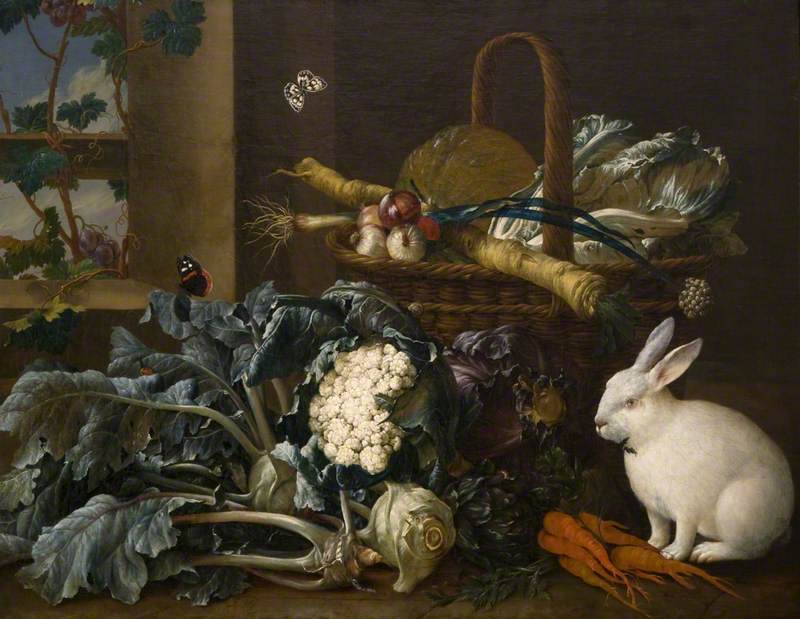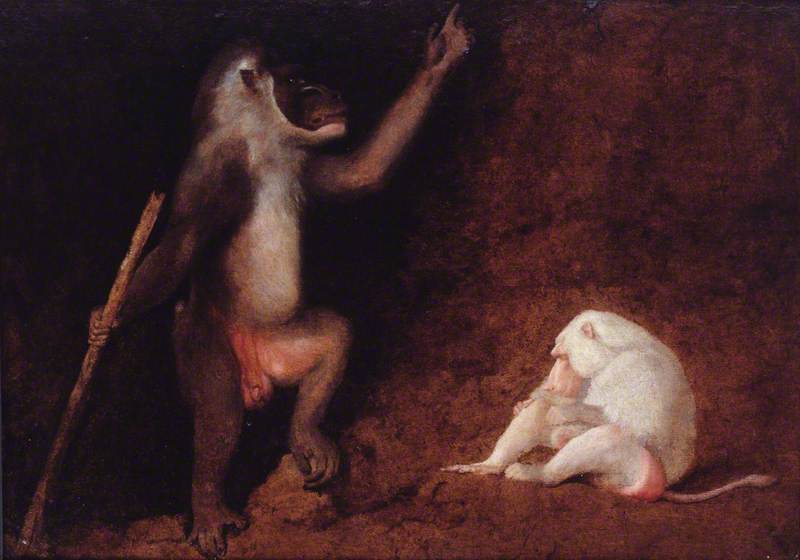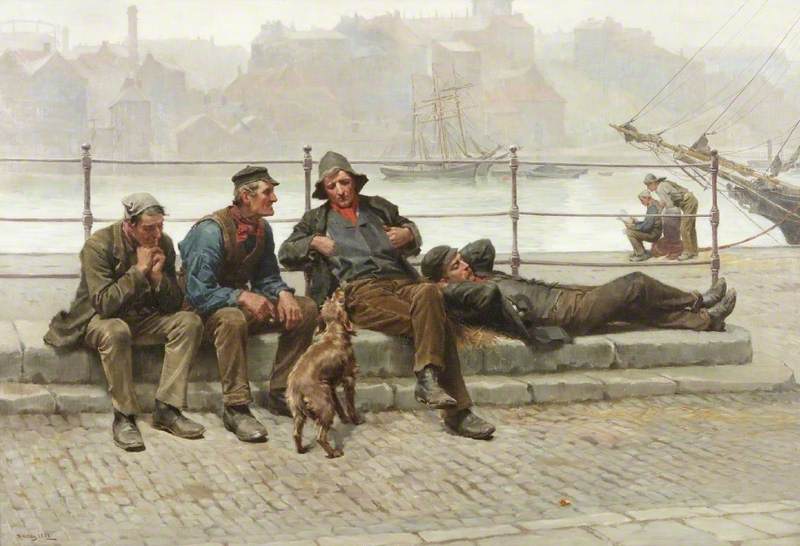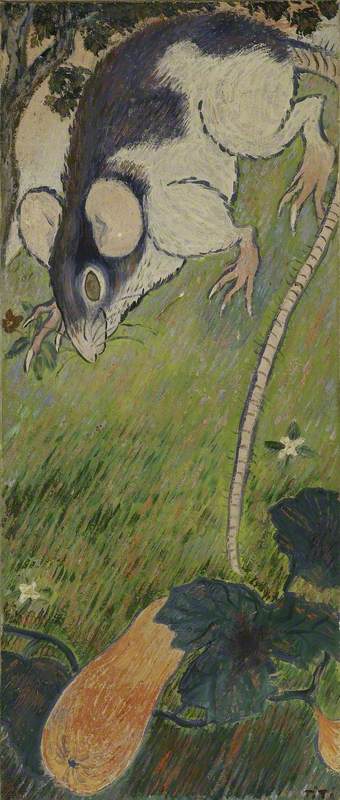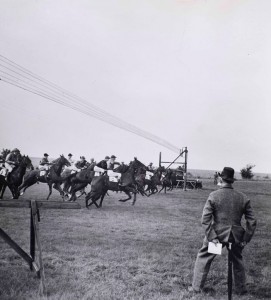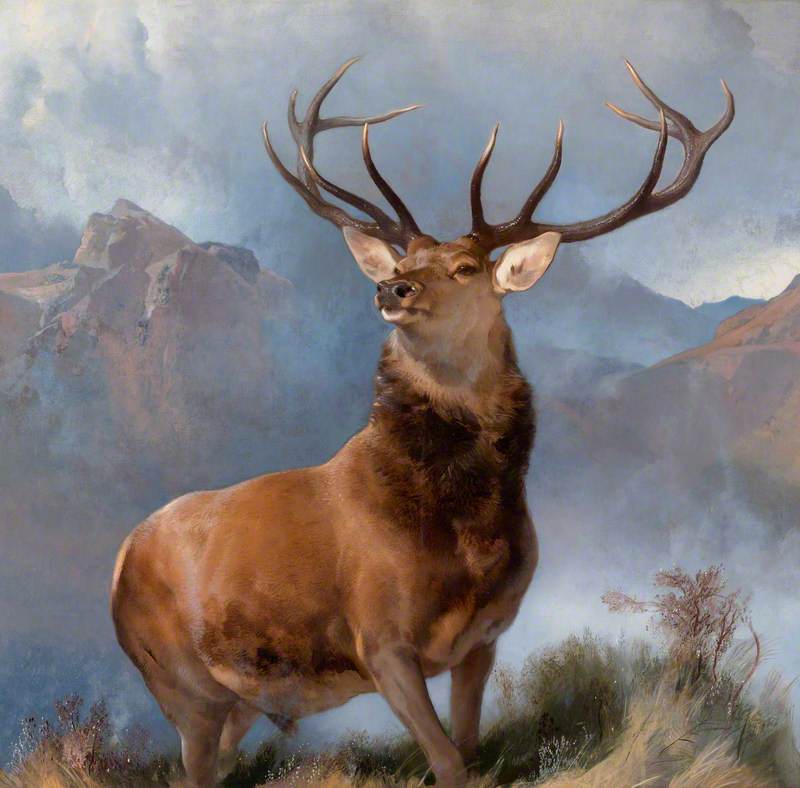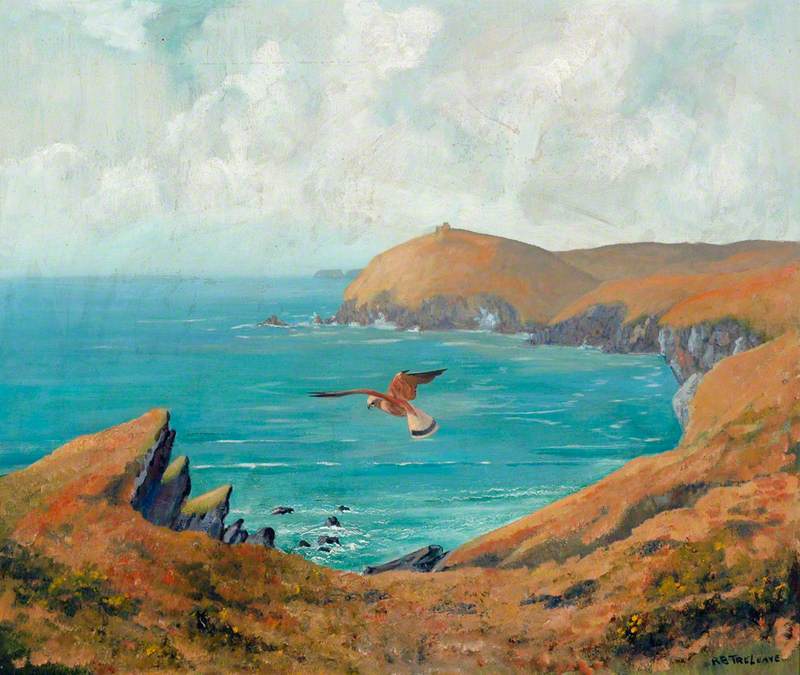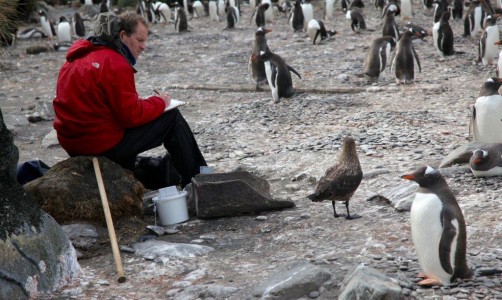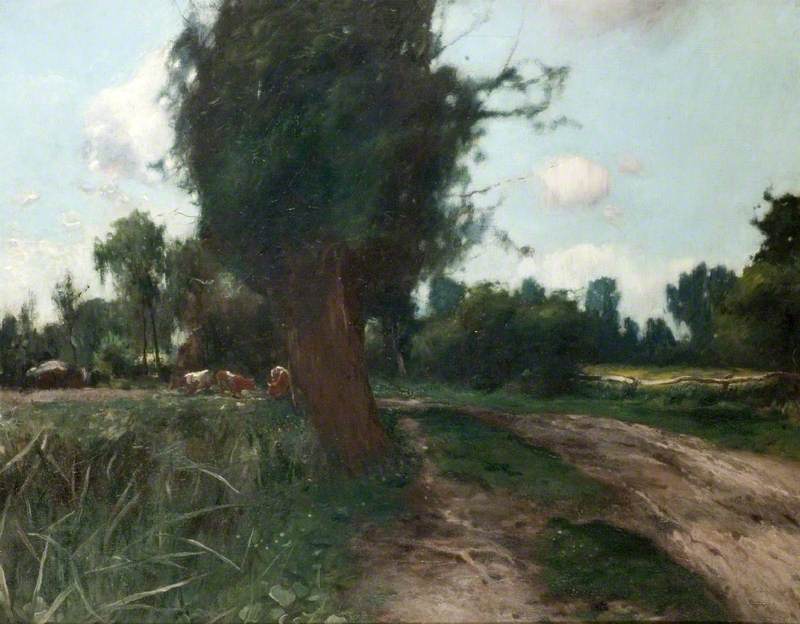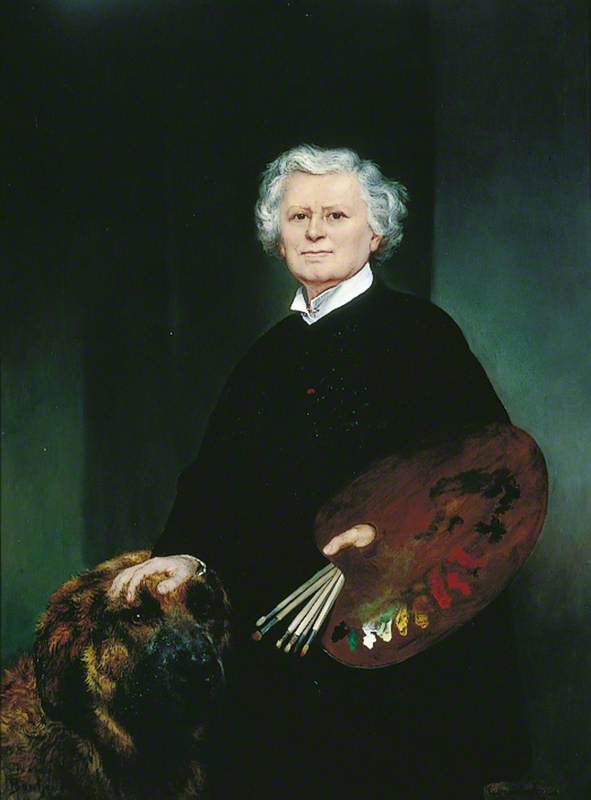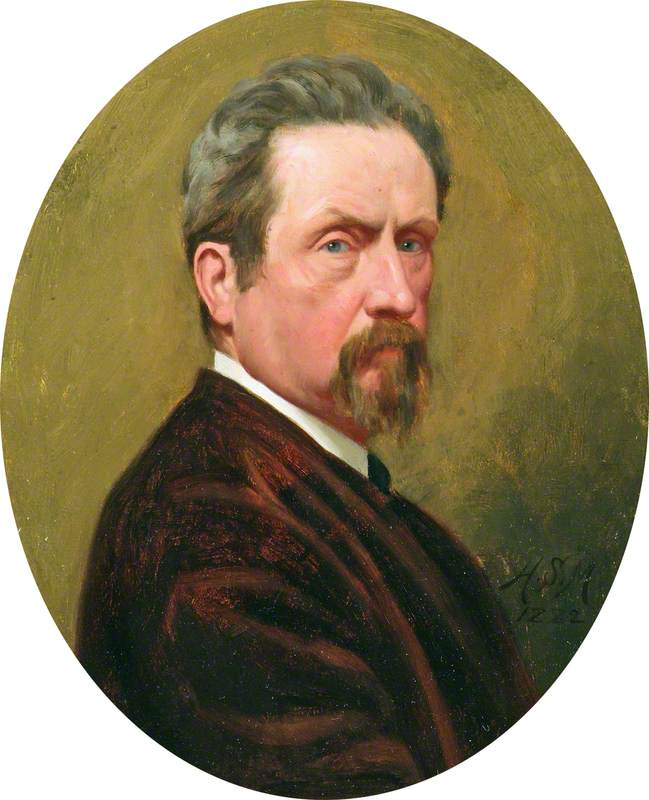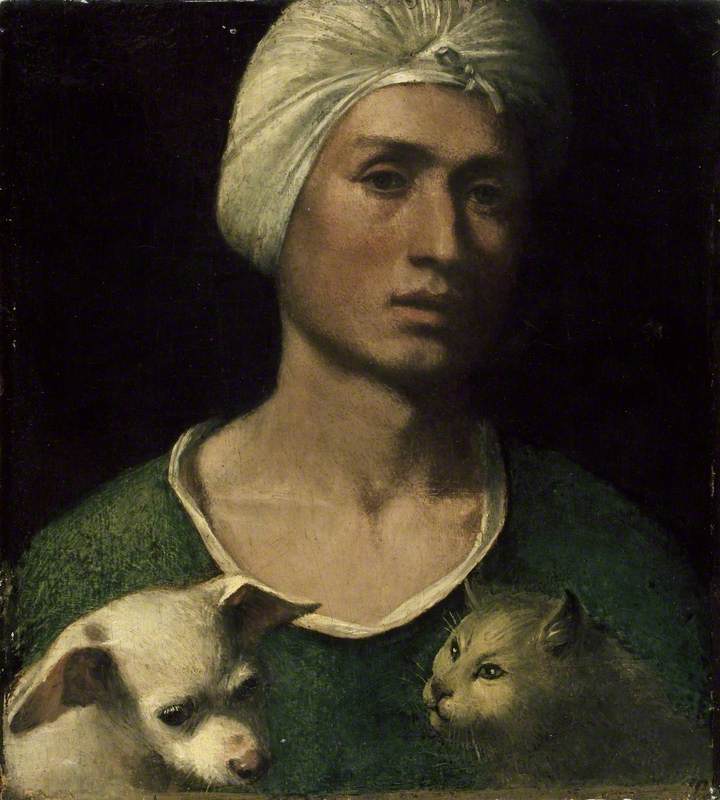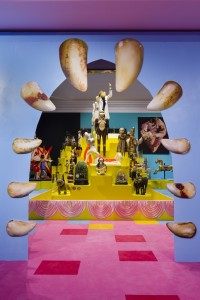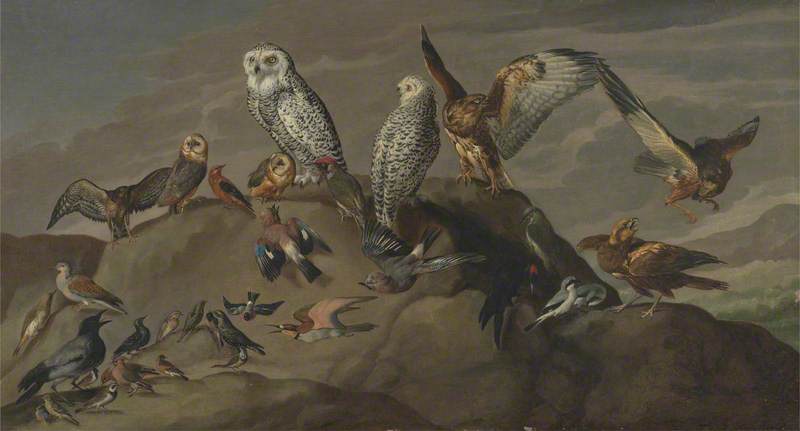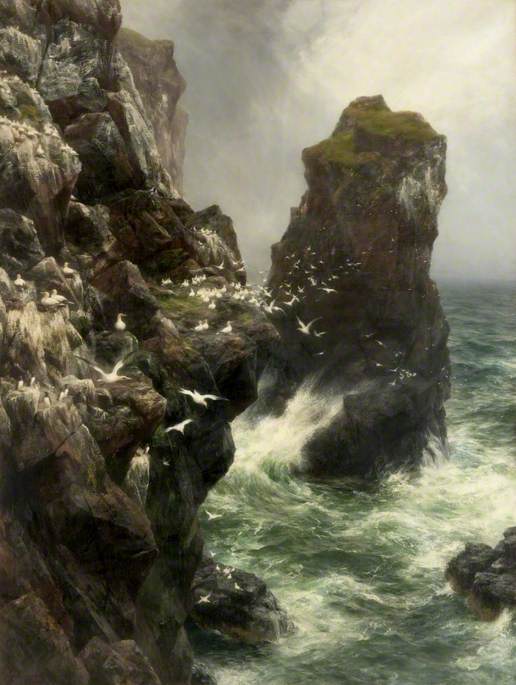From the age of 40, William Gunning King (1859–1940) looked to livestock for his livelihood. To keep the wolf from the door he painted chickens, sheep, pigs and, most prolifically, cattle.
‘Nobody had a better eye for a cow than Gunning King’, according to the management of J. Bibby and Sons, a Liverpool firm which supplied animal feed to hundreds of British farms in the Edwardian era.
Cattle feed advert for J. Bibby and Sons
1902 by Gunning King (1859–1940) 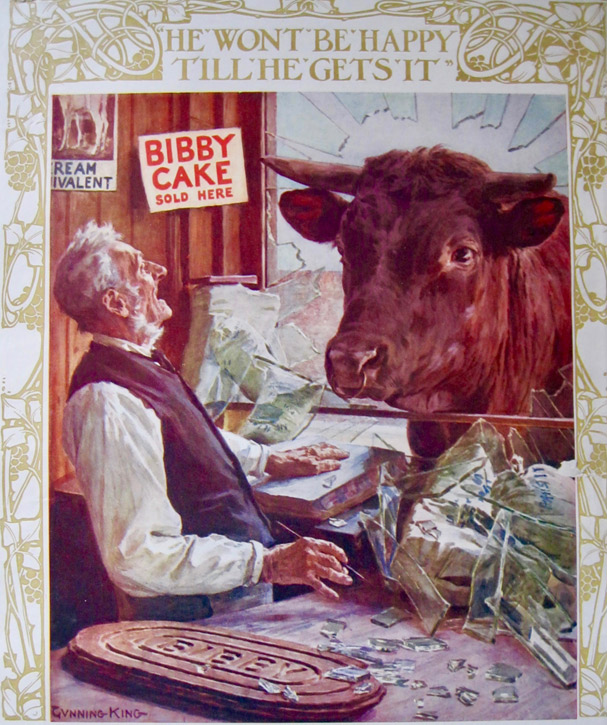
Over a 30-year period, Gunning King painted around 300 pictures for Bibby’s which, apart from their artistic merit, provide a valuable, if somewhat idealised,
A Game of Patience
c.1913, oil on canvas by Gunning King (1859–1940) 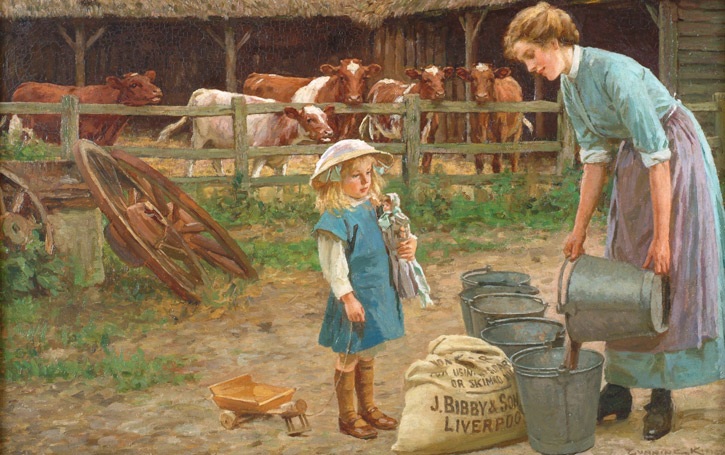
Many of his images appeared in a magazine called Bibby’s Quarterly, the hobby horse of the firm’s senior partner Joseph Bibby who was an art lover and frustrated journalist.
Bibby's Quarterly 1901/2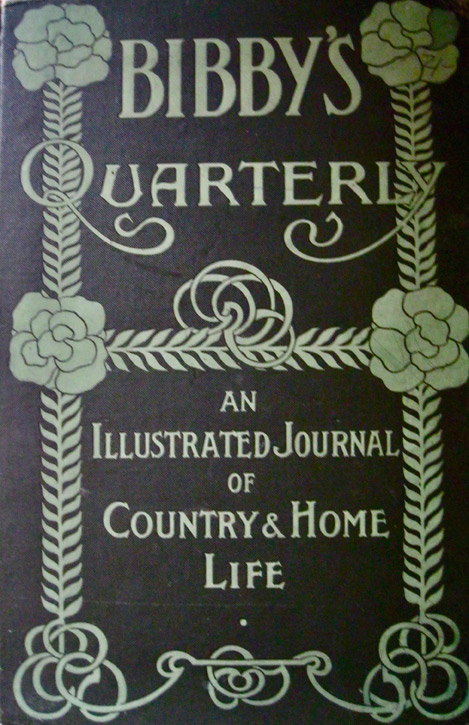
Curiously the magazine mixed technical farming tips with literary, artistic and religious topics. It was lavishly produced and included high-quality reproductions of paintings by the likes of Constable and Turner, as well as Gunning King’s farming subjects.
Chickens Feeding
1934, oil on canvas by Gunning King (1859–1940) 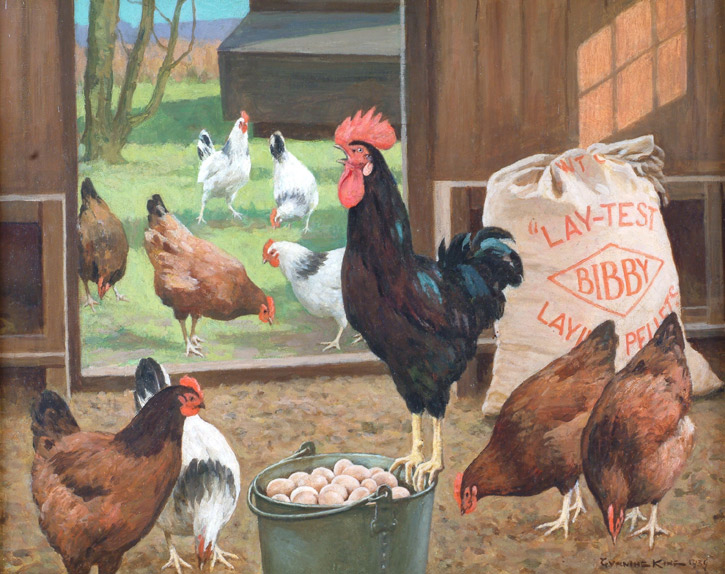
Gunning King, a frequent exhibitor at the Royal Academy, was a skilled portraitist who provided many illustrations for Punch, but it was as an animal painter that he excelled.
Farmers at the Sty
1926, oil on canvas by Gunning King (1859–1940) 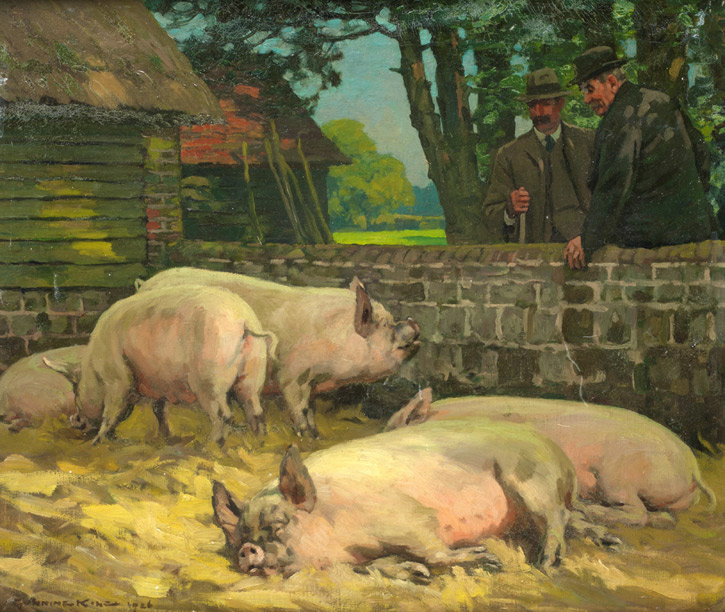
During his association with Bibby’s, he illustrated up to a dozen calendars with a farming picture for each month, such as this one called Early Spring Lambing for March 1934.
Early Spring Lambing
1934, oil on canvas by Gunning King (1859–1940) 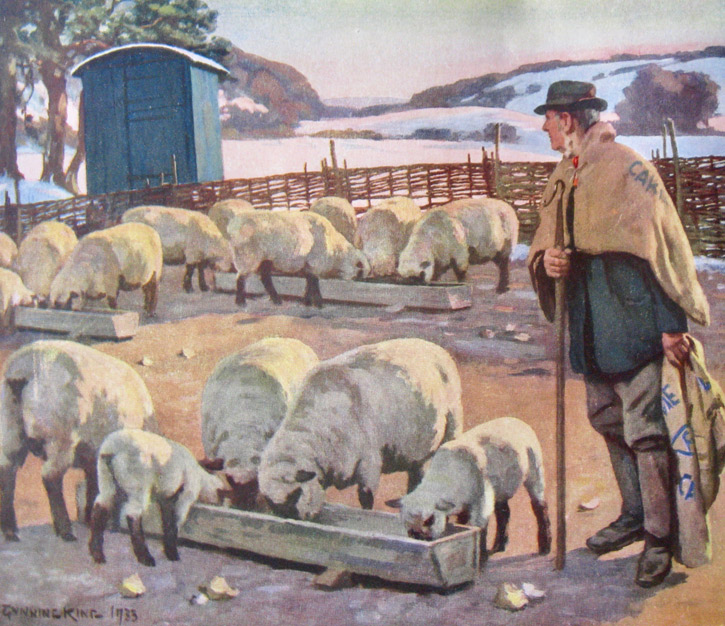
Many of his oil paintings and sketches were bequeathed to Brighton and Hove Museums and Art Galleries, which holds all but a dozen of his 185 works on Art UK. Few galleries can boast such an extensive bovine collection.
Many are preparatory sketches for the calendars, including friendly looking cows and, rather less friendly, bulls.
Gunning King was a congenial man who spent his final years in the West Sussex village of South Harting where he painted up until his death at the age of 81.
His animal paintings crop up occasionally at auction but today he is probably best known for this spirited herd of carol singers.
James Trollope, author and columnist
